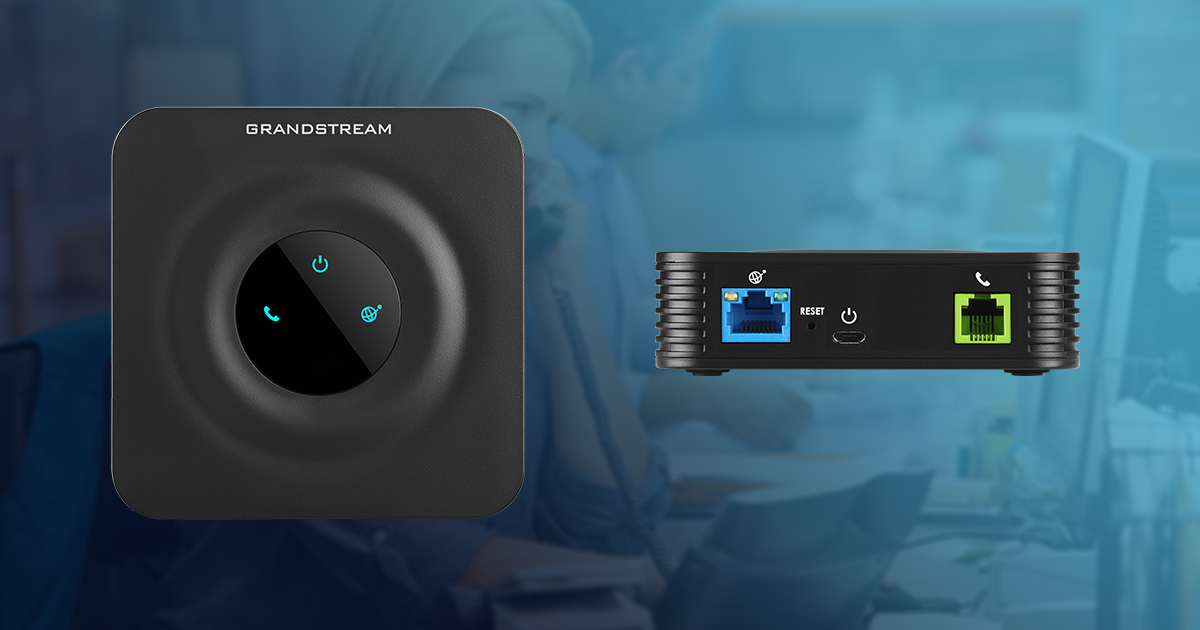
VoIP Adapters vs VoIP Phones: Which is Right for You?
As more homes and small businesses transition to internet-based telephony, the debate between VoIP adapters and VoIP phones has gained traction. Both offer distinct advantages and disadvantages, making the choice highly dependent on your needs, budget, and existing hardware. In this article, we’ll break down the key differences, costs, pros, and cons of each option to help you make an informed decision.
What is a VoIP Adapter?
A VoIP adapter, often referred to as an FXO adapter, is a device that allows traditional analogue telephones—such as old BT or alternative DECT phones—to connect to a VoIP service. This means that if you already have a functional telephone system, you can retain your current handsets while enjoying the benefits of VoIP calling.
Typical Cost of a VoIP Adapter
- VoIP adapters generally cost between £50 and £60
- If you already own a good-quality analogue phone system, this can be a cost-effective option compared to purchasing new VoIP handsets
Pros of Using a VoIP Adapter
- Cost-effective, avoids investment in a new phone system
- Familiarity, no learning curve for traditional handset users
- Easy setup, simple plug-and-play installation
- Retains existing hardware, ideal if you have high-end BT or alternative DECT phones
Cons of Using a VoIP Adapter
- Limited features, analogue phones lack advanced VoIP functionalities
- Dependence on old technology, lacks modern capabilities
- Not ideal for larger businesses, scaling can be cumbersome
What is a VoIP Phone?
A VoIP phone is a purpose-built device designed for making and receiving calls over the internet. These phones often come with advanced functionalities such as call forwarding, call transfer, multi-handset systems, voicemail, and auto-provisioning.
Typical Cost of a VoIP Phone System
- Entry-level DECT VoIP phone systems (such as Yealink or Grandstream) start at £100 to £200 for a 1-3 handset system
- More advanced models with additional features may cost £200+
Pros of Using a VoIP Phone
- Enhanced features such as LDAP address book integration, auto-provisioning, call transfer, and HD audio
- Designed for VoIP, optimised for internet telephony with better call quality
- Scalability, easier to add new handsets to a system
- Better integration, many VoIP phones support cloud PBXs for seamless communication
Cons of Using a VoIP Phone
- Higher upfront cost, purchasing multiple handsets can be expensive
- Learning curve, some users may need time to adjust
- Requires a new investment, existing analogue phones become redundant
Yealink and Other DECT VoIP Phone Features
For those considering VoIP phones, Yealink DECT VoIP phones are a great option. They offer useful features that can enhance business operations, including:
- Call transfer between handsets, making internal communication seamless
- LDAP address lookup, allowing access to centralised contact directories
- Auto-provisioning, enabling easy configuration and deployment
- Scalability, additional handsets can be added affordably
Other manufacturers such as Grandstream, Gigaset, and Cisco offer similar features, ensuring a range of options depending on budget and requirements.
VoIP Adapters vs VoIP Phones – Which is Best for You?
For Home Users
If you already own a good BT or alternative DECT phone, a VoIP adapter is a cost-effective solution that allows you to take advantage of VoIP services without a major upfront investment. However, if you want additional features and better call quality, a DECT VoIP phone system may be worth considering.
For Small Businesses
A VoIP phone system is the better option for scalability, call management, and enhanced features. If your business requires call transfers, directory lookups, and auto-provisioning, a VoIP phone is a future-proof investment.
For Budget-Conscious Users
A VoIP adapter can be a good compromise if you need to transition to VoIP without replacing your entire phone system immediately.
VoIP Adapters vs VoIP Phones
Choosing between a VoIP adapter and a VoIP phone depends on your needs and budget. If you’re looking for a low-cost way to migrate to VoIP while keeping your existing phones, an FXO adapter is a good choice. However, if you want a modern, feature-rich solution with better scalability, a DECT VoIP phone system is the way forward.
Ultimately, small businesses and home users should assess their communication needs carefully to decide whether to repurpose their existing phones with an adapter or invest in a VoIP phone system for better long-term value.
Need Help Deciding on VoIP Adapters or VoIP Phones?
Not sure whether to choose a VoIP phone or VoIP adapter? Get in touch with us today at Plexatalk on 0330 057 6699 or email support@plexatalk.co.uk for assistance in finding the right setup for your home or business.
VoIP Adapters vs VoIP Phones – Frequently Asked Questions
What is the main difference between a VoIP adapter and a VoIP phone?
A VoIP adapter allows you to use traditional analogue phones with a VoIP service, while a VoIP phone is a purpose-built device designed specifically for making and receiving calls over the internet with advanced features.
Which is more cost-effective: a VoIP adapter or a VoIP phone?
A VoIP adapter is generally more cost-effective if you already own analogue phones, as it allows you to keep using them with VoIP services. VoIP phones, however, provide better features and scalability, making them a better long-term investment.
Can I use my existing landline phone with VoIP?
Yes, you can use your existing analogue phone with a VoIP service by connecting it through a VoIP adapter (FXO adapter).
Do VoIP phones offer better call quality than VoIP adapters?
Yes. VoIP phones are designed for internet-based telephony and typically provide better call quality with features like HD audio and noise reduction.
Is a VoIP adapter difficult to install?
No, most VoIP adapters are plug-and-play, making them easy to set up with minimal configuration.
What are the limitations of using a VoIP adapter?
VoIP adapters rely on analogue phones, which may lack modern VoIP features like call transfer, directory lookups, and auto-provisioning.
